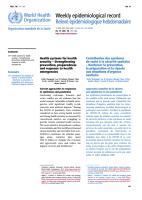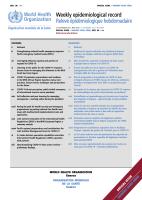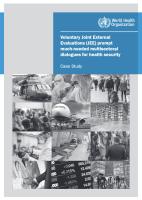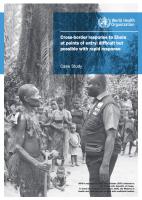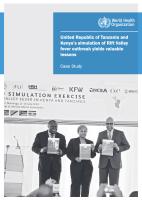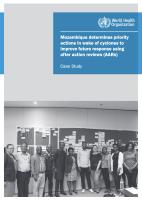
Evidence and Analytics for Health Security (EHS)
Countries develop and maintain capacities across sectors to prevent, detect and respond to public health emergencies. Systematic assessments of country-level health emergency preparedness provide powerful insight into the critical gaps and priorities of a country and can guide crucial policy and strategic decisions, including how strategies and activities are developed, costed and financed, and which interventions can best lead to impact in the short-term. Data-driven analysis is further complemented by case studies which illustrate how these activities were implemented within a setting.
Many countries have implemented measures to mitigate health emergencies, either at national or subnational (including community/local) levels that are adapted to their local context and need. These experiences can be shared with others across the world as they may be useful evidence in developing or refining local preparedness, readiness and response plans. To support the identification, documentation and dissemination of best practices and lessons learned, the EHS unit supports WHO country and regional offices and Member States to publish case studies on this webpage. Please reach out via ehs@who.int if we can provide support.
